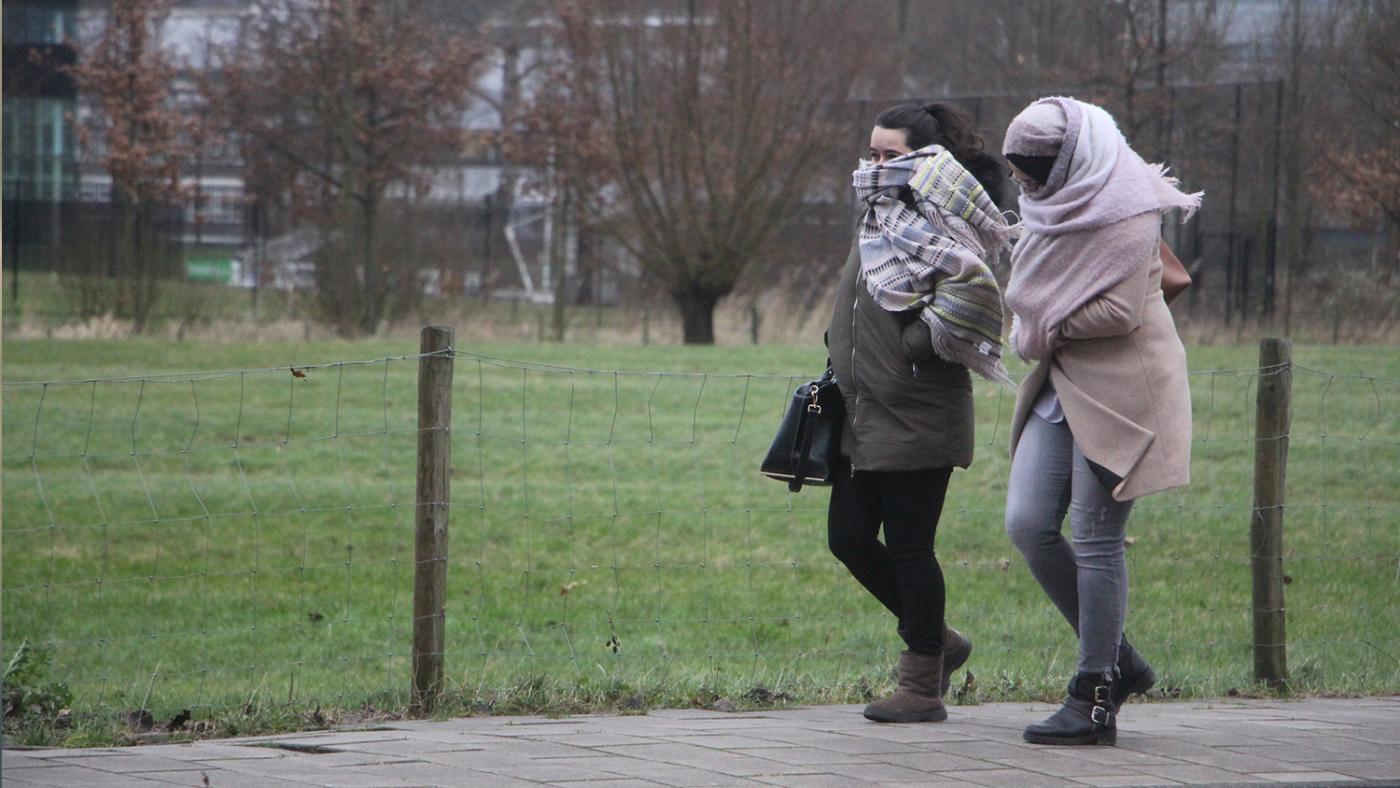Having friends around helps a lot
Four tips to beat the winter blues

There aren't many scientific studies about the winter blues, says Denise Bodden, Associate Professor in Pedagogy and a psychologist. But anyone can see that people get more gloomy and unmotivated as the days become shorter and colder. Some dive in a darker shade of blue than others, though. Marida, a first-year Spanish student, has difficulty getting out of bed. Julia, a second-year student in Mocular & Biophysical Life Sciences feels sleepy the entire day and is often not in the mood to meet her friends – or do anything else, for that matter.
Geert, now in the third year of a Bachelor's in Interdisciplinary Social Sciences, has much less energy in the winter, which also means he doesn't have as much fun when socialising. Giel, who has just completed a Bachelor's in Administrative & Organisational Science, walks a lot less in the winter, compared to other seasons. "I go outside for a walk or read on a bench every day during the summer. But now days are so grey and dreary that I prefer to stay inside, which puts me in a bit of a rut. I feel pretty gloomy sometimes." For Psychology student Jesse, the worst thing about winter is the lack of serendipity: since people tend to stay indoors more, they are less likely to meet someone out of the blue. "I need that spontaneity," she says.
Winter blues or depression?
Denise Bodden nods when she hears about these students' experiences. ‘’That's exactly how one would describe the winter blues,‘’ explains Bodden, whose work covers depression and anxiety disorders. She says these feelings are common and can happen to anyone. Fortunately, winter blues is not the same as depression.
According to Bodden, the difference is the symptoms' duration, intensity and impact. Depression lasts longer and its symptoms are consistent and persistent. People suffering from the winter blues recover faster and are usually still able to enjoy certain things, like gatherings with friends, despite the gloomy feelings. Such pleasure is usually absent in depressed patients, and the impact the symptoms have on their daily lives is much more profound.

Photo: DUB
What you can do
It can be hard to figure out what to do about the winter blues other than hope it goes away when spring arrives, but that's still three months away. Luckily, Bodden says that simple changes to your habits can alleviate the symptoms, helping you make it to spring in a better mood.
1. Don't change your sleeping and eating patterns too much
Most people tend to stay in bed longer and go to bed later in the winter. It may be hard to get up on time when the sun rises so late. Some people feel more tired this time of the year, even when they get enough sleep. Bodden says it is important to stick to your regular sleep pattern to keep your energy levels stable.
Maintaining a balanced diet is equally important. Feeling gloomy makes us more prone to reaching for a bag of crisps or candy, but that is counterproductive as a healthy diet improves our mood. You don't have to become some kind of health freak, but keep that in mind.
2. Keep doing fun things
Many people assume that light therapy and vitamin D are the solution to winter blues. Although biological factors certainly come into play, staying active and social is just as important. We tend to socialise less when we're feeling down, but, again, that's counterproductive because we get less positive reinforcement from social activities as a result. This affects our brain's reward system negatively.
So, keep doing things you enjoy, no matter how small. If you are less inclined to go outside because the weather is bad, consider activities you can do at home on your own. You might even discover a new hobby like painting or playing the guitar. You can binge-watch a series once in a while, of course, but passive activities usually make us less happy than we expect.
3. Keep moving
Try to keep exercising and moving because sports are good for your mental health. If you're part of a football team, for example, and they're taking a break in the winter, search for another sport you can do temporarily. This will also ensure you keep doing fun things as mentioned earlier.
If you're not a sporty type, you can increase the amount of physical activity in your daily life. For example, you could cycle or take a walk outside instead of taking the bus. You don't have to go for a two-hour walk in the woods, a 10-minute walk will do. The fresh air will do you good and, if you're lucky, you might even catch some sun rays and replenish your vitamin D.
4. Take it easy
Stress only worsens the winter blues, so your gloomy feelings may be intensified if you're stressing out about an exam, for instance. So, try to take it easy. You don't have to meditate or do mindfulness exercises if you don't want to, but you could listen attentively to music, quietly drink a cup of tea or write a journal to sort out your feelings. Again, going for a walk can be great as it allows you to look around and pay attention to minor details. Most of us skip these moments of rest often, but having them regularly helps us to relax and send stress away.
If you still need help
If the tips above don't work for you, there is still hope. There are several places you can turn to at the university if you're feeling gloomy, regardless of whether these feelings are temporary or long-lasting. You can consult the student psychologist or visit caring universities, a platform with tips for people feeling bleak.